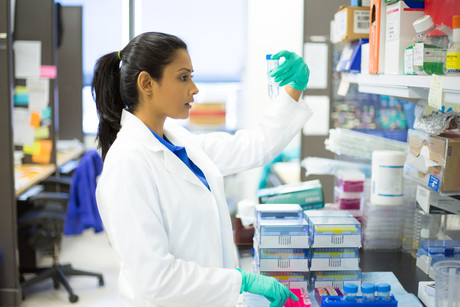Medical research boosted by Budget

While not everyone in the healthcare industry is happy with the 2018 Budget, the medical research sector is delighted.
The Australian Government has committed to investing $1.3 billion to fund genomic research projects investigating medicines that can be tailored to individual patients, clinical trials of new drugs and development of new medical technologies.
The initiative, part of 21st Century Medical Industry Growth Plan, also includes a 10-year $500 million commitment to the Genomics Health Futures Mission. A further $707 million in funding from the Medical Research Future Fund will be provided to support the Frontier Health and Medical Research program, expanded clinical trials, Biomedtech programs and Industry Researcher Collaborations.
These Budget initiatives have been broadly welcomed by industry stakeholders. “This is a great Budget for medical research, and this is where the Australian medical research sector should be heading,” said Professor Tony Cunningham AO, President, the Association of Australian Medical Research Institutes (AAMRI).
“It’s fantastic to see the government recognise that for Australians to continue to benefit from this work, we need to continue funding it,” said Cunningham. “These are all areas where Australian researchers are delivering excellent results.”
Several other industry leaders echoed a similar sentiment. Professor Andrew Holmes, President of the Australian Academy of Science, said, “It reflects the long-term and strategic approach that is needed for Australia to benefit from science and innovation at a global scale.”
A 12-year National Research Infrastructure Investment Plan will commit $1.9 billion to critical national research infrastructure, including $140 million for upgrades to the two most powerful computing facilities in the Southern Hemisphere. “Australia’s national supercomputers give scientists across government, industry and universities the processing power for the complex scientific computations needed in an advanced society including accurate weather forecasts, drug development and large-scale astronomy,” Holmes said.
The Growth Plan also includes 10-year investments of $248 million for rare cancers and diseases and $125 million for the Million Minds Mental Health Research Mission to support more research and better diagnosis and treatment of mental illness.
The Budget includes a $41 million space agency and investment program, $4.5 million in new measures to encourage girls and women to pursue STEM education and careers, and a $29.9 million research initiative on artificial intelligence and machine learning.
“We have a long way to go as a nation, particularly on big issues like STEM education and training at school and university, and climate change,” said Holmes.
“But we are moving forward together and the government has made a clear commitment in this Budget to working collaboratively with the science sector to maximise the benefits for all Australians.”
Kylie Walker, CEO, Science & Technology Australia, said, “The 2018 Budget indicates the government has listened to the need to restore support for major science agencies and invest in research infrastructure to position Australia as a leader in global science, technology, engineering and mathematics (STEM) research and innovation.”
The government has also committed to refocusing the R&D Tax Incentive in line with recommendations made in the recent review, said Walker. “A return to keeping pace with CPI is very welcome for the Australian Research Council and other research agencies like the CSIRO. We’re also pleased to see a boost for measures to engage and inspire all Australians with STEM, as well as specific measures to support greater participation by girls and women in STEM.
“However, we note the future STEM workforce still requires attention — STEM graduate rates are threatened by continued capping of Commonwealth support for undergraduate places at Australian universities. Australia will need many more people equipped with STEM skills in our workforce to compete internationally. This short-term saving will be a loss for future generations.”
Originally published here.
19th Victorian Public Healthcare Awards — winners revealed
Recognising leadership and excellence in the provision of publicly funded health care, the...
Dr Vinod Seetharaman appointed Dedalus ANZ Chief Medical Officer
Healthcare technology provider Dedalus Australia and New Zealand (ANZ) has appointed Dr Vinod...
Ramsay Health Care Australia faces charges following patient death
Ramsay Health Care Australia Pty Ltd is facing two charges following the death of a patient at...

![[New Zealand] Transform from Security Awareness to a Security Culture: A Vital Shift for SMB Healthcare — Webinar](https://d1v1e13ebw3o15.cloudfront.net/data/89856/wfmedia_thumb/..jpg)
![[Australia] Transform from Security Awareness to a Security Culture: A Vital Shift for SMB Healthcare — Webinar](https://d1v1e13ebw3o15.cloudfront.net/data/89855/wfmedia_thumb/..jpg)




